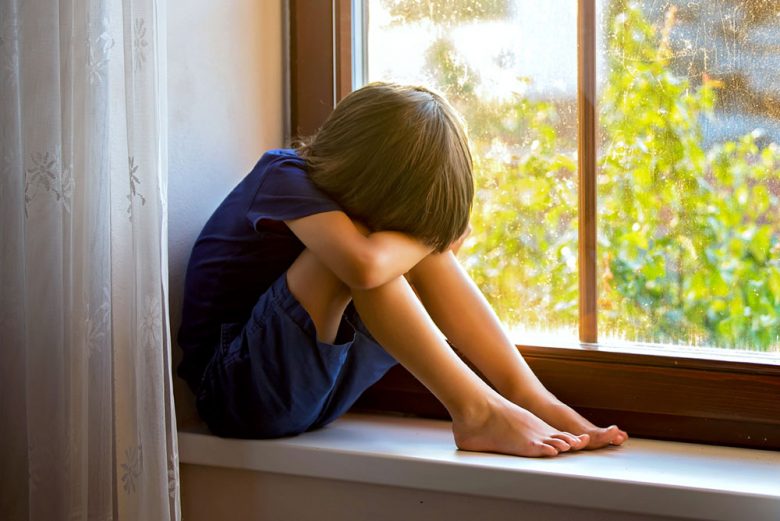
We love our children. Let’s make sure they know it.
Carol and Anne discuss a common practice in parenting culture that has been amped up by social media. Listen in to hear if you unknowingly shame your children—and how to stop.
This episode includes helpful tips to reframe your negative judgments of all 4 Types of children.
This week’s Parenting Practice
This week, notice your words. How do you talk about your children—both in conversation and on social media? Commit to stop speaking in any ways that shame them. Reframe how you talk about your children to honor their gifts! (This episode gives examples for all 4 Types. Listen in.)
Transcript of podcast episode
Anne: I’m on “The Child Whisperer” podcast. I should know better, but I think you just kind of get in those scenarios and this is what you do. So, why do we bash our children, why do we come up with these negative labels?
Carol: Welcome to “The Child Whisperer” podcast. I’m your host Carol Tuttle, author of the bestselling parenting book “The Child Whisperer”. I’m with my co-host, Ann Tuttle Brown. Rather than a question this week, we have a situation that we feel very passionate about that we’d like to chat with you about. And this involves the age of social media, and a common practice that’s been happening within the parenting culture, I think for many decades. It’s just social media presents it as a new level of opportunity to be mindful of.
And the scenario is, are you shaming your child unknowingly? And this occurs when you talk about your child in the adjectives and labels you put on them. I see in the social media world, which I’m on every day, I am an influencer online, and so I’m on Instagram, I’m on Facebook, I’m on these different platforms that I’m seeing what others are doing. And there seems to be a trend and the age group that you’re in, Ann, of the millennial mother basically that’s sharing their story, their passion, their experience, particularly on Instagram. And that’s where we see a lot of hashtags.
And this came to my attention when a recent, as I was…I’ve stopped following this person because they kept hashtagging their child with a really negative reference. And I’m not going to say, I don’t want to point fingers and that, I felt it was so unfortunate that it was done so mindlessly to say, “You’re really shaming your child every time you use that hashtag. You know, they might be three, but there’s an energy you put out and a perception you project on them, and you’re inviting everyone else to see that.” It’s not cute, it’s not fun, it’s in a form of parent bullying, in my opinion to say. Don’t put your children down in social media. Now, there’s that kind of blatant, “My child is the…” And ironically, guess what type the child is?
Anne: Type three.
Carol: Exactly. Type three child, that’s very hands-on, he’s a toddler getting into things, very…
Anne: What are some labels that they might use? Bad, defiant, naughty.
Carol: Naughty, defiant. And they do that repeatedly, it’s like the child has this hashtag now. And it’s like that’s really put your child down, not understanding their determined, take on the challenge nature. Now, you have a scenario where I think this has been happening for decades, where it’s the social conversations, when you will get together with another mother and talk about kind of the difficult kid and how hard they are and even have…well, you had an experience recently.
Anne: Yeah. I mean you’ll talk about your kids, you’ll talk about how they sleeping or all the cute things they’ve done and all [crosstalk 00:03:15].
Carol: Your frustrations.
Anne: Yeah. For sure, your frustrations.
Carol: Your stresses.
Anne: Or just the kind of their quirks. And so, we had some friends over and their daughter is just a couple years younger than my type three daughter and they were playing really well together and the other mom said, “Well, she’s kind of bossy,” and I said, “Well, so is my daughter. She’s bossy too. So, they get along great.” Later that evening, I was like, “I shouldn’t have said that. I should have said instead to portray the same behavior, Katie loves to be in charge. So she plays really well with younger kids.”
Carol: Because that’s just sort of order of allowing her to be more in charge and not have to fight for that role.
Anne: Yeah. She loves to be in charge. She loves to take the lead. She has a great gift to take the lead, and I admire that in her, and it serves her well. And when she plays with kids, she likes to take the lead. And so, labeling that as if that’s a better way to say it than, “She’s bossy,” because with that, I mean, that’s negative, right? That’s just like, “She’s bossy. She’s telling everyone what to do.”
Carol: She’s annoying.
Anne: She’s annoying, right? So, these two little bossy girls…
Carol: She has this problem.
Anne: Yeah. And, I mean, I’m on “The Child Whisperer” podcast, I should know that, I should know better. But I think you just kind of get in those scenarios and this is what you do. So, why do we bash our children? Why do we come up with these negative labels? I think sometimes you want to fit in. I think it’s a little bit like humorous sometimes, that pressure release.
Carol: What’s that mean? Yeah, I know what you’re feeling. So, there is some empathy exchange, like, “Yeah. I get it. I have that scenario too.” And you kind of line up with the way a child is being referenced by just joining the conversation from that perspective and just using negative labels for a child. Looking at your motive, I think the motive is fair. There’s a stress involved with a child that requires more of your effort, more of your time, more strategy, more trial and error. There’s a stress involved with that, so that’s fair. You want to be supported in knowing you’re not alone, other parents are going through this. It’s just that tweaking of, in your story for example, they go, “I get what you’re saying. I have that experience too.” That’s fair. That’s good source support, to have empathy, to feel like, “I’m not alone in this. This parent gets me and my situation.” That relieves some of the stress, it’s just modifying their references. It’s that simple.
Anne: And having those open and honest conversations can be supportive rather than just giving your kid a label like, “She’s always bossy. They’re so difficult. They’re so defiant.” I’ve had conversations with my husband where, “She’s not listening to me, she’s talking back. Like, it’s really annoying. What do I do?” And just getting that support like, “It’s okay.” Okay, maybe there’s some modifications we need to make and just rather than lashing out at her or calling her, you know, telling her, giving her a label or going to a friend and just kind of making light of it.
If there’s really an issue, talk to someone openly about the challenge. I’m glad you’re here on “The Child Whisperer” podcast that you can get those insights and inspiration that you need to solve the problem. But I think every type of child has kind of a label that they come with, and you talk about this in “The Child Whisperer”. So, let’s go over each type of child and how that bossy label that I used to describe my type three could be turned into a positive reference.
Carol: After we do that, I want to talk about, because I think it’s parents listening to us are very proactive in making these changes. The real touchy area is when a relative starts labeling your child in these negative ways and what do you do about that. Because actually that came up in our lifestyle group where someone posted a scenario without details, just saying, “I have a situation where someone is now using these negative labels without the information. What do I do?” And so, let’s look at that as well. So the type one child can get labelled as the scattered, less responsible, yeah, movement…
Anne: Hyper.
Carol: Hyper, “Your child is so hyper. Yeah. They’re so hyper. They never sit still.”
Anne: ADHD. Even if it’s not, like, obviously that’s a real diagnosis.
Carol: That’s a real diagnosis.
Anne: But I think it can get thrown around.
Carol: Yeah. In the world of a very type four environment, the child could look overly hyper and it could be just their movement is out of balance in the situation they’re in. The type two child gets called whiny. And that they’re just, “My child is so whiny.”
Anne: So needy.
Carol: Needy.
Anne: Too sensitive.
Carol: They’re too sensitive. And the type three child, that determined nature gets called defiant. They’re just, you know, they get, I think they get hit with some of the more extreme labels because the toddler phase is so challenging. Because the…
Anne: Or the mother like, “He’s out to get me. Like my child really is defiant.” And it’s like, “No. He’s three years old.”
Carol: I’ve said I’ve said this many times on previous podcasts in the former format. Your three-year-old never wakes up and goes, “How can I get my mother today?” They don’t have ill intent. It’s just a misunderstanding of their nature or there’s a lot of variables that’s what we address every week, we’ve got support for you. And then the type four child is just, they’re extreme in their seriousness. They’re not light enough. They are know-it-alls, “You’re such a know it all. You know, you always have to be right.”
Anne: So what are some more positive phrases you could use, even if you are dealing with the, a very [crosstalk 00:08:48] type one?
Carol: We’ve got the fun-loving child, the sensitive child, the determined child, and the more serious child. That’s one reason I gave those labels in each of the sections on each of the four types of children was to present a label that honored their movement rather than change it.
Anne: In reference, “The Child Whisperer” book, four handy phrases to use, lots of great vocabulary in there to describe and honor your child and use those words. I love that you take charge, Katie. I love that about you, I really do. And [crosstalk 00:09:21].
Carol: Well, and you found a solution where you found that actually her playing with a child a year or two younger than her sets her up for success. So we’re not saying to excuse misbehaving, or letting the children do whatever they want. It’s up to you as parent to set up scenarios that supports their true nature so success is a more natural, effortless outcome. You’ve come up with the strategy for that. She does fine in school though because she’s now putting, she’s in a structure bigger than her and the teacher’s in charge and she respects that.
Anne: I would say too, if you have read “The Child Whisperer” and you’re getting, or if you haven’t, but if it’s been while, and you’re getting kind of frustrated with your child, read back through the, you know, that type section. I’ve done this recently with my type three because it was like, “Okay. I need to remember what this looks like and honor that.” And it brought a lot of peace and ah-ha’s as I went through it again. So if it’s been a while, go through “The Child Whisperer” again.
Carol: So what do you do if a relative is calling your child…
Anne: It’s funny…
Carol: …one of these negative labels and they are referring to their energy type in the negative label but they don’t have the information to understand that’s how they move through life and you have a false expectation of who you think they should be?
Anne: Well, it’s interesting because obviously in our family group, everyone’s aware of the types and there’s an expectation of the high movement, the low movement, and the sensitive nature. And it’s interesting to me when we go out with other family or even just with friends in the neighborhood, they pick up on that so quickly, “Your little Sam, he’s so sweet,” is a word they often use. “Katie is so full of life,” we hear so many, they’ll just meet at church or a neighbor across the street, “She is so full of life.”
Carol: Even the word passionate can apply.
Anne: I’m like, “You’ve known her for five minutes.” That really comes across, I guess, or with family, she really moves a lot, and I’m like, “I guess she does.”
Carol: So, what if you were in a setting and someone said, “Man, she’s so, like, she just is so bossy, like, she’s annoying.” It’s presented like this kid needs to be disciplined here, you know, you need to change this.
Anne: Honestly, I probably wouldn’t say anything but I know I’d wish I would have. So, we’re gonna give you some good comebacks right now.
Carol: What would I say…
Anne: Well, I think in that scenario, now, that I’ve been through it, she’s so bossy, she loves to take charge.
Carol: Yeah. You could say, “Yeah. She’s a very passionate little girl. She loves to take charge.” You could put your own positive on it.
Anne: Yeah. You could say, “I love that about her.”
Carol: I know my child.
Anne: As a parent, you’re teaching them how to manage these gifts that can turn into challenges. And I love that about her and we’re working on it, I don’t know. What would you say? You’re so sensitive [crosstalk 00:12:07]
Carol: Well, I think you go to those four very specific, positive labels that are presented. You know, so if a negative reference is made about a type one child with someone that is uninformed, “Yes, my child is very fun loving. They have very buoyant energy and we’re there to support them.”
Anne: And there to support her, that’s [inaudible 00:12:30].
Carol: Yes. My child is sensitive. They have some really strong emotional needs, and we’re really learning how to support them, that you’re in process.
Anne: I could see with the type two, do they always pray like that? What do they need, are they hungry?
Carol: You need to stop your child from whining. They’re very sensitive, it can come out that way at times and we’re really learning how to support them. Type three, we’ve covered. Just say, “Yep. They love to take charge, and we’re really learning how to direct that energy, how to support them and that big energy they have.” Type four, “Yeah. My child is more serious about life and more private.” One of my pet peeves in the whole parenting world is to force a type four child to look at an adult that they don’t even know, and trying to engage and say, “Hi.” You’re forcing them.
Anne: Go give grandma a hug.
Carol: Yeah. I’m like, “Oh, no. Don’t make him do that.” You know, recognize there’s a, even a type two child, there’s a level of familiarity that needs to occur. There’s a privacy factor for a type four. There is a lack of familiarity factor for a type two child. So, you know, those forced connections, I’m like, “Don’t do it.”
Anne: Calista, [SP] our type four expert shared a story that when her great-grandma came over, her mom would let her go out to the hay bales. I guess she grew up on a farm, and she said you don’t have to interact because she knew, she didn’t know Calista’s type, but she knew that she was more private, didn’t like to be forced in those interactions. And so, Calista just has really fond memories of when great grandma came over, she got to go hide in the hay bales and read. [crosstalk 00:14:01].
Anne: I’ve got it. I’ve got it. That just prompted a practice for grandparents because there’s a tendency for a grandparent to say, “Give grandma a hug.” I never say that. I never force the hug. I feel it’s not, it’s not giving a child a choice, and I wouldn’t want someone to say that to me. Like, well, maybe I don’t feel like hugging you.
Anne: Yeah. That’s the type three part. [inaudible 00:14:24].
Carol: So, I always say to my grandchildren, “Can I give you a hug?” And if they say no to me, or they’re not really there to do that, it’s just that they’re not feeling it right now, I don’t take it personal. I respect the fact that’s they’re small. You know, in my type four grandson, who’s soon to be eleven, he will only give side to side kind of, you know, arm around each other. He doesn’t like a front on hug. I could take that personal and think, “I could force him.” No. He’ll even give me that because I respect the fact that he’s not comfortable with another form of connection at this point.
Anne: This could be a whole another podcast. I’m thinking as a parent, I mean, I know when Katie has kind of been like, “No, no, Grandma,” and run away, and then I take it personal, I’m like, “I’m sorry.” I feel like I have to apologize but I’m like, “You get it.”
Carol: Let’s bring it back to where we started with, “Are you shaming your child unknowingly?” You know, I think your intentions are well served that you’re looking for support. You’re not intentionally…now, unless you’re using hashtags with shaming labels and that’s you know pretty intentional.
Anne: Or run over [crosstalk 00:15:32].
Carol: That just needs to stop. Are you talking about your children in social media in a negative way? Choose to get support from family members you trust, close friends and conversations that are productive to say, “I’m stressed out by this,” go back to the book, get out of the stress rather than trying to relieve the stress in these very superficial ways of putting it on social media, using it as a tool to get empathy or attention. That’s not effective, it’s not supportive to a true outcome of change, and it’s certainly projecting a negative energy onto your child that overall, is not what you want. So put that to practice this week.
Anne: And then, more specifically, how could you in those moments of, like I did with the bossy to the in charge, how can you rephrase in those conversations to share your child’s nature and their wonderful gifts?
Carol: Thanks for listening. For more support, go to thechildwhisperer.com where you can purchase the book, subscribe to our weekly parenting practice email, and find a transcription and audio of “The Child Whisperer” podcast.
Anne: If you’re listening on iTunes, thank you for leaving a review. If you have a parenting question, please send it to [email protected].



